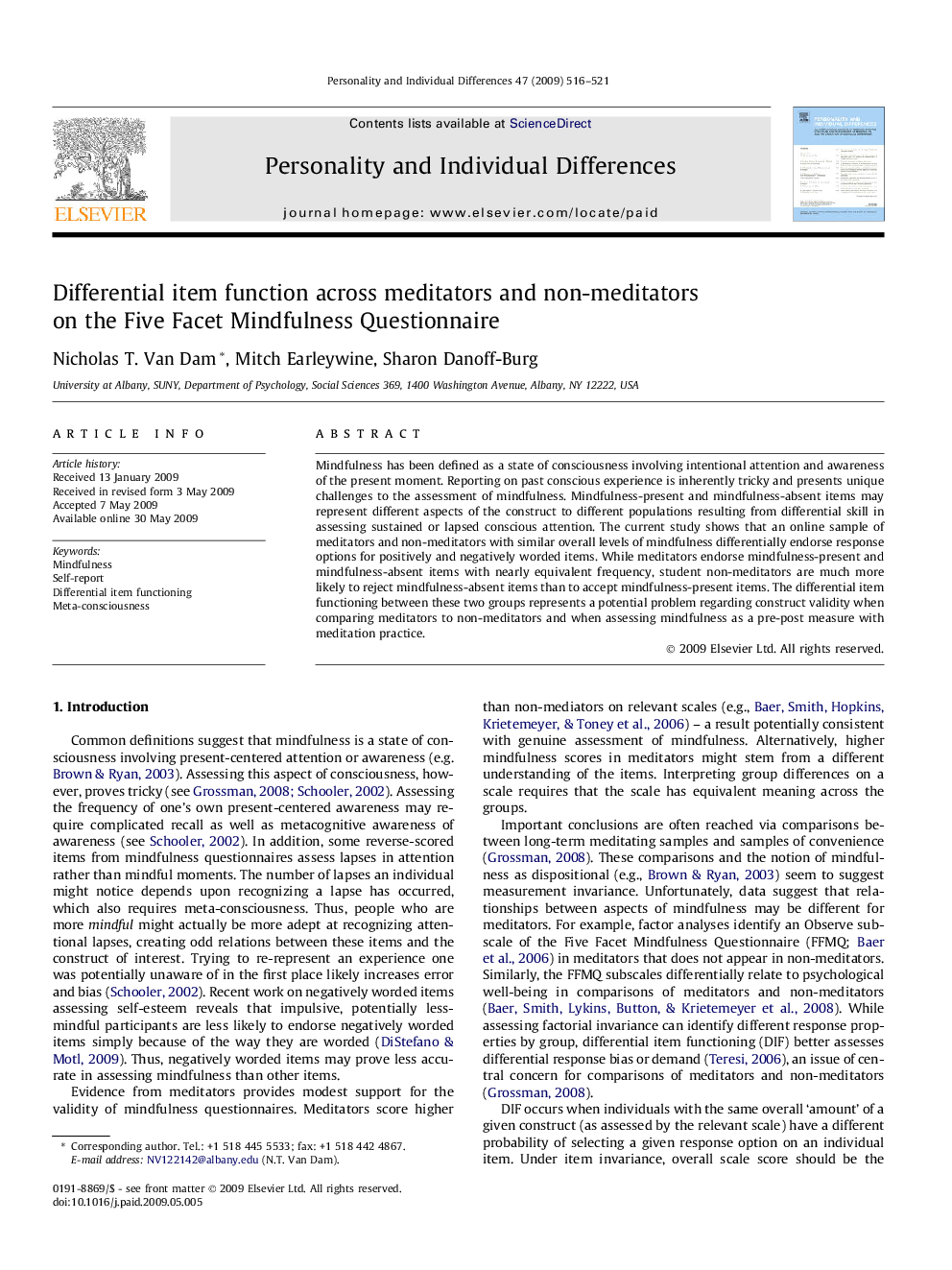| Article ID | Journal | Published Year | Pages | File Type |
|---|---|---|---|---|
| 892084 | Personality and Individual Differences | 2009 | 6 Pages |
Mindfulness has been defined as a state of consciousness involving intentional attention and awareness of the present moment. Reporting on past conscious experience is inherently tricky and presents unique challenges to the assessment of mindfulness. Mindfulness-present and mindfulness-absent items may represent different aspects of the construct to different populations resulting from differential skill in assessing sustained or lapsed conscious attention. The current study shows that an online sample of meditators and non-meditators with similar overall levels of mindfulness differentially endorse response options for positively and negatively worded items. While meditators endorse mindfulness-present and mindfulness-absent items with nearly equivalent frequency, student non-meditators are much more likely to reject mindfulness-absent items than to accept mindfulness-present items. The differential item functioning between these two groups represents a potential problem regarding construct validity when comparing meditators to non-meditators and when assessing mindfulness as a pre-post measure with meditation practice.
